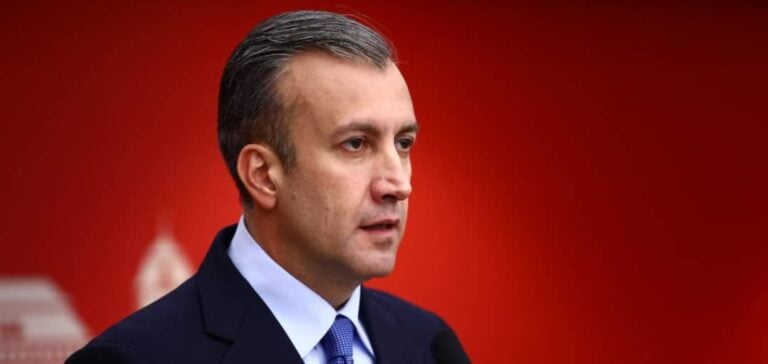Venezuela’s Attorney General, Tarek William Saab, announced the arrest of former Oil Minister Tareck El Aissami, telling the press: “We have succeeded in uncovering the direct involvement and arrest” of El Aissami, who will be “presented and charged by the Public Prosecutor’s Office in the coming hours.” El Aissami, who served as vice-president under Nicolas Maduro from 2017 to 2018, was already targeted by US sanctions.
Scope of survey
Tarek William Saab said 54 people have been charged and “17 arrest warrants have been issued.” He also revealed the arrests of Simon Alejandro Zerpa, former Minister of the Economy, and Samar José Lopez, accused of money laundering. Five other individuals, who cooperated with the courts, became protected witnesses, described by Saab as “golden witnesses”.
Accusations and evidence
Crimes include treason, misappropriation of public assets and money laundering. The prosecutor accused those involved of “arbitrary and criminal management of funds obtained through the sale of products” and of illegally taking commissions. He also mentioned the existence of a “prostitution network” involving young Venezuelans and foreigners.
Political and economic context
This comes as Petro, the Venezuelan oil-backed cryptocurrency, was discontinued earlier this year after being used in an attempt to circumvent US sanctions. Nicolas Maduro promised to “completely clean PDVSA of all these mechanisms… of all these people who steal the people’s money,” announcing “draconian restructuring measures at the highest level.”
These arrests signal a potential turning point in the management of corruption in Venezuela. Maduro’s promised reforms and ongoing legal actions could redefine the country’s approach to governance and natural resource management.






















